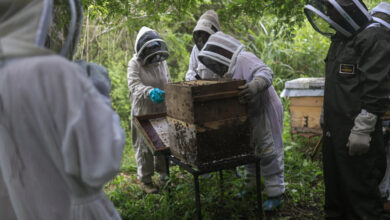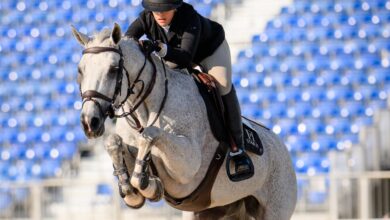Having a Disability Does Not Make You Special at All: Lina Rojas
Creativity is for Lina Marcela Rojas Montoya the perfect ally to achieve people's well-being and improve their living conditions.

The Woman Post | Ana Suárez
Listen to this article
Lina Marcela Rojas was eager to reach the world. She was born in the 22nd week of gestation. ”I do not know my desire, I have been asking myself for 37 years about the mission I have in life, I have fun trying to discover it.”
She was diagnosed with Infantile Cerebral Palsy, affecting her motor skills."When they say Cerebral Palsy, people think there is a pretty big cognitively compromised. In my case, it was only the motor skills of my lower limbs." She also lost the vision of her right eye by 80%, while she was in the incubator.
She is a Social Communicator with a Master's Degree in Digital Communication, currently working as a Business Developer – at Inclume.com; and Project Manager, at Cleiman.
She is very active in social networks, using them to show the world what it is like to live with a disability and show that she is not afraid or ashamed. People ask her how she prefers to be called: Person with a disability, with functional diversity or disabled -that is the one she likes the least- and she responds: "Lina, nice to meet you."
For her, it is important to understand that disability is not a characteristic of human beings, but a condition generated by the environment when there are barriers that do not allow autonomous development. "Having a disability doesn't make you special at all."
There are still barriers in this regard, even from the media, it is about putting on the agenda, but there is a lot of ignorance and the easy way out is sought by naming with adjectives, such as: "how cute, poor people, what special beings."
But How To Give Greater Visibility?
Language is part of a discussion that goes beyond putting terms and naming certain things. "Sometimes they believe that we are not the subject of discussion, and even politically and socially, they make decisions about the population with disabilities, without asking those involved."
Referring to the Inclusion Bank of the Congress of the Republic of Colombia, she mentioned that "this is useless. The instrument is well-intentioned and there are good approaches. Until then the homework was done."
Also read: THE PANDEMIC TRANSFORMED LEARNING BY PROVIDING NEW RESOURCES
She is aware that steps have been taken, "but that will serve, the day that the population with disabilities, as a group, are aware of their political power, when they stop doing that, we and we, when the rain of voices. I do a mea culpa and this goes to the entire population with disabilities, and I include myself. We work as islands, there is no articulation."
Social Networks and Disability
It is important to break with the technological accessibility barriers, those that refer to the visual and auditory part since it is not always easy to access the daily use of cell phones, computers, tablets, and others, although it should be mentioned that some are already available applications and software that make it easy.
Lina states that "disability is directly proportional to poverty, therefore, accessing technology, for the majority of people with disabilities, is a luxury, and accessing these means is a privilege. So, I take advantage of that privileged position that I have, and I am ashamed to have to admit that I have a privilege, but I have it."
In this sense, social networks have to serve to empower and open doors to all disabilities and not only to the one that is striking.
Olympians and Disability
During the past Paralympic Games, the empowering speech was seen a lot: "'They are tough, they are hardy, they are brave.' No, they are high-performance athletes! They are athletes who apply to disciplines that require training, to develop skills and maximize their body, as an Olympic athlete does.
Example and action are more powerful. See people with disabilities actively participating in social dynamics, in this case in sport. "And that the Paralympic Games are given the importance they really have, and the same level of coverage and accompaniment of the Olympic Games."
The prefix "for" does not mean that they have fewer skills, it is simply a denomination. They are athletes who face a qualification, a competition. There they do not go with considerations. "They were for the purpose of competing, winning medals and diplomas because they train just like an Olympic athlete." These jousts were the opportunity to make visible the women who practice a discipline without any impediment. In the case of Colombia, the participating girls and young women obtained diplomas and medals.
"It is necessary to articulate all efforts, to put us all on the same path. Sport benefits us all, and in this case, the triumphs in the Paralympic Games motivate many girls to practice some sport."




